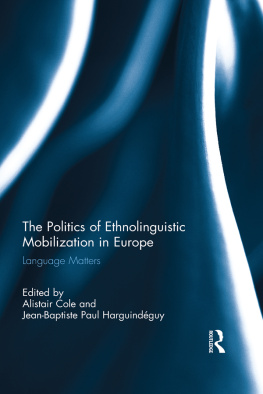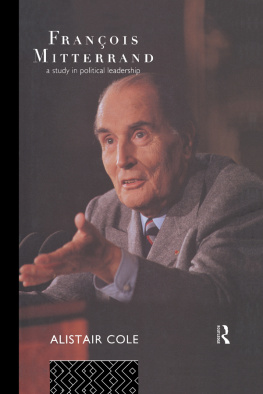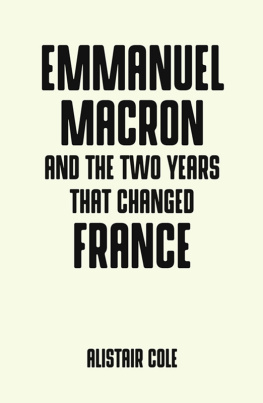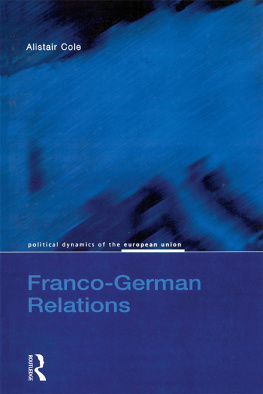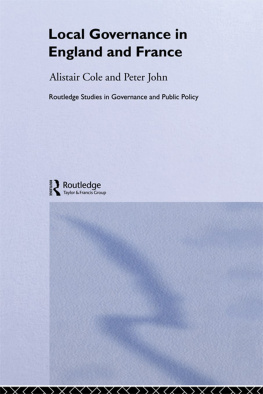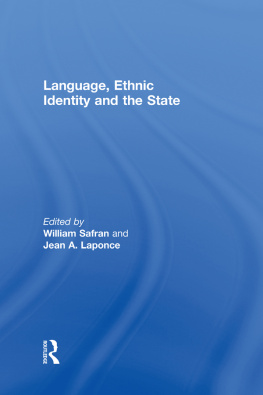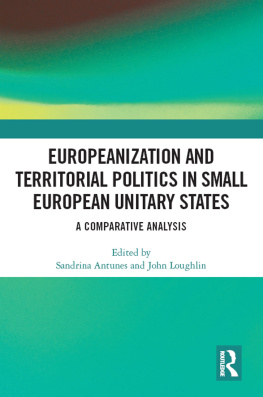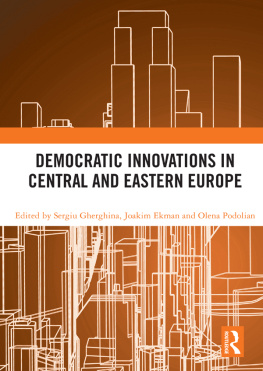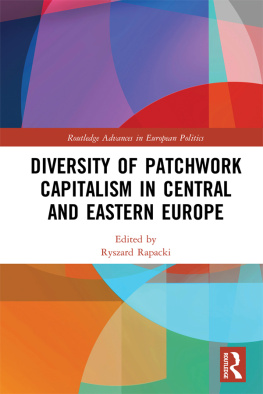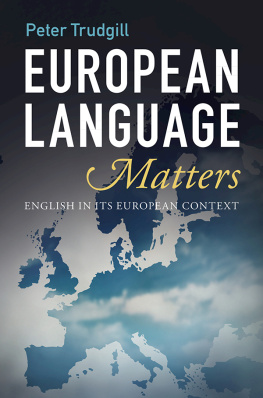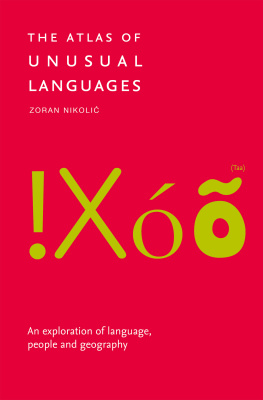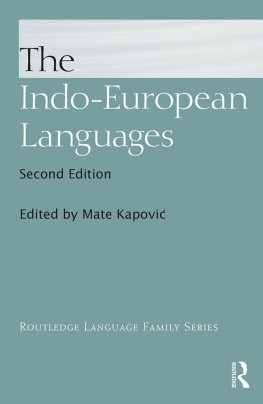The Politics of Ethnolinguistic Mobilization in Europe
Language constitutes a very sensitive nexus between the concepts of territory and community. Though a fundamental issue in contemporary societies, it remains relatively unaddressed by political scientists. This book promotes a better understanding of the connection between the concepts of identity, territory and language in the context of an enlarged Europe. We propose a portrait of the actual place of regional languages in European politics. Ethnolinguistic mobilizations have occurred in very different contexts, and their interpretation needs to take into account varying configurations and conditions of success that we label as situational, institutional, and sociopolitical. The book combines empirical case studies drawn from Spain, the UK, Poland, France, Ireland and Canada with comparative, conceptual and theoretical insights into linguistic uniformity and diversity. The various chapters in the book go beyond description. The originality of the work is to bridge the institutionalization of language regimes, the sociological analysis of underpin language claims.
This book was previously published as a special issue of Regional and Federal Studies.
Alistair Cole is Professor of European Politics at Cardiff University, UK.
Jean-Baptiste Paul Harguindguy is Associate Professor at Universidad Pablo de Olavide, Seville, Spain.
The Politics of Ethnolinguistic Mobilization in Europe
Language Matters
Edited by
Alistair Cole and
Jean-Baptiste Paul Harguindguy
First published 2014
by Routledge
2 Park Square, Milton Park, Abingdon, Oxon, OX14 4RN
and by Routledge
711 Third Avenue, New York, NY 10017
Routledge is an imprint of the Taylor & Francis Group, an informa business
2014 Taylor & Francis
All rights reserved. No part of this book may be reprinted or reproduced or utilised in any form or by any electronic, mechanical, or other means, now known or hereafter invented, includingphotocopying and recording, or in any information storage or retrieval system, without permission in writing from the publishers.
Trademark notice: Product or corporate names may be trademarks or registered trademarks, and are used only for identification and explanation without intent to infringe.
British Library Cataloguing in Publication Data
A catalogue record for this book is available from the British Library
ISBN13: 978-0-415-72340-4
Typeset in Times New Roman
by Taylor & Francis Books
Publishers Note
The publisher accepts responsibility for any inconsistencies that may have arisen during the conversion of this book from journal articles to book chapters, namely the possible inclusion of journal terminology.
Disclaimer
Every effort has been made to contact copyright holders for their permission to reprint material in this book. The publishers would be grateful to hear from any copyright holder who is not here acknowledged and will undertake to rectify any errors or omissions in future editions of this book.
Contents
Jean-Baptiste Paul Harguindguy & Alistair Cole
Thomas Jeffrey Miley
Alistair Cole & Jean-Baptiste Paul Harguindguy
Magdalena Dembinska
Patrick Carlin
Huw Lewis
Colin Haslehurst Williams
The chapters in this book were originally published in Regional and Federal Studies, volume 23, issue 1 (2013). When citing this material, please use the original page numbering for each article, as follows:
Chapter 1
Ethnolinguistic Mobilizations in Europe. An Introduction
Jean-Baptiste Paul Harguindguy & Alistair Cole
Regional and Federal Studies, volume 23, issue 1 (2013) pp. 16
Chapter 2
Blocked Articulation and Nationalist Hegemony in Catalonia
Thomas Jeffrey Miley
Regional and Federal Studies, volume 23, issue 1 (2013) pp. 726
Chapter 3
The Jacobin Republic and Language Rights. Ethnolinguistic Mobilizations in France
Alistair Cole & Jean-Baptiste Paul Harguindguy
Regional and Federal Studies, volume 23, issue 1 (2013) pp. 2746
Chapter 4
Ethnopolitical Mobilization without Groups: Nation-Building in Upper Silesia
Magdalena Dembinska
Regional and Federal Studies, volume 23, issue 1 (2013) pp. 4766
Chapter 5
Doing As They Are Told? Subregional Language Policies in the Basque Country, Catalonia and Wales
Patrick Carlin
Regional and Federal Studies, volume 23, issue 1 (2013) pp. 6786
Chapter 6
On the Right to Linguistic Survival
Huw Lewis
Regional and Federal Studies, volume 23, issue 1 (2013) pp. 87100
Chapter 7
Perfidious Hope: The Legislative Turn in Official Minority Language Regimes
Colin Haslehurst Williams
Regional and Federal Studies, volume 23, issue 1 (2013) pp. 101122
Please direct any queries you may have about the citations to clsuk.permissions@cengage.com
JEAN-BAPTISTE PAUL HARGUINDGUY*& ALISTAIR COLE**
*Public Law-Political Science, Universidad Pablo de Olavide, Seville, Spain, **Cardiff University, Cardiff, UK
Although language is a fundamental issue in contemporary societies, it remains relatively unaddressed by political scientists. The aim of this special issuebased on the workshop Ethnolinguistic Mobilizations and Regional Languages in Europe organized under the auspices of the Joint Sessions of the European Consortium for Political Research held in Munster, Germany in 2010is to explore and compare the different strategies used by linguistic movements to defend regional languages in Europe. The title Ethnolinguistic Mobilizations in Europe refers to the broad array of movements (including social movements, pressure groups, formal parties and political institutions) which defend vernacular languages.
The terms used to refer to vernacular languages can vary from one study to another. Nevertheless, vernacular languages and regional languages seem the most neutral expressions as they do not impose a symbolical hierarchy between the language of the state and the other languages spoken within the national borders. The state language is usually a regional language that historically was able to impose itself on the other ones. However, the focus on regional language clearly excludes the other tongues spoken in Europe, such as those imported by migrants (Swahili, Chinese, Arabic) or those spoken by very specific communities (like Hebrew, for instance). By using the concept of ethnolinguistic, we aim to study the political uses of languages spoken in different regions of Europe. We use the term regional as a generic one, to signify that our analysis refers to the sub-state level. In practice, the areas of influence of these languages rarely fit neatly into the administrative regional subdivisions of the European countries; indeed, these linguistic areas encompass different regions from different states at the same time (as in Catalonia or the Basque Country).
Language Politics and Ethnolinguistic Mobilization
Language currently constitutes a very sensitive nexus between the concepts of territory and community. Ethnolinguistic mobilizations have occurred in very different contexts, and their interpretation needs to take into account varying configurations and conditions of success. The process of nation-state building in Europe generally used language as an instrument of political domination. In other words, language was used by state governments to produce consistent polities based on linguistic homogenization. Indeed, modernist authors (for example, Karl Deutsch, 1953) identified as inevitable the underlying trend towards cultural centralization. The starting point of analysis of most articles in this special issue is the historical observation that the process of linguistic monopolization partially failed. Empirical research in this special issue demonstrates both the emergence of a variety of ethnolinguistic social movements mobilizing in support of a new deal for regional languages and the taking into consideration of this issue by central governments (for example in the Basque Country, in Wales or in Flanders).

